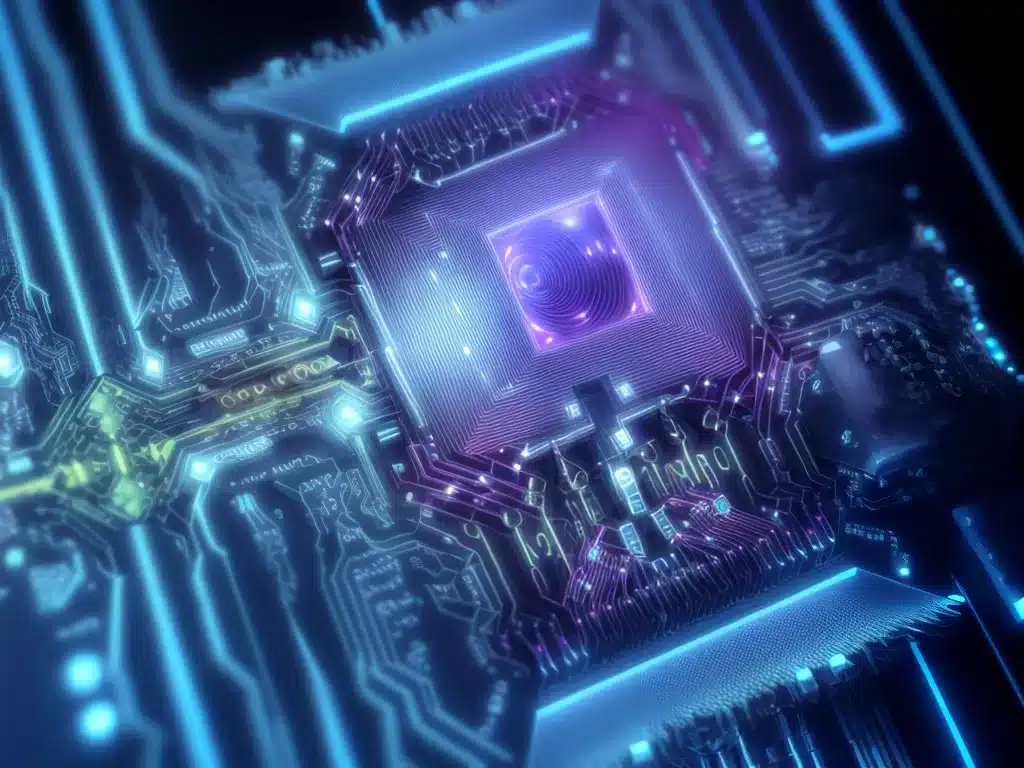
Introduction
Quantum computing is an exciting and rapidly advancing field that leverages the strange properties of quantum mechanics to perform calculations exponentially faster than classical computers. As we approach 2024, quantum computers are becoming more powerful and moving out of research labs into real-world applications. Although full-scale, universal quantum computers may still be years away, many experts predict 2024 will see big leaps forward. This article provides a beginner’s guide to understanding the basics of quantum computing and how to get started learning about it and even accessing quantum computers in 2024.
Learn the Fundamentals
To understand quantum computing, you need to learn some of the foundational principles from quantum physics that make it possible. Here are the key concepts to focus on:
Qubits
The basic unit of information in a quantum computer. Unlike classical bits that can only represent 0 or 1, qubits can represent 0, 1, or a superposition of both states at once. This superposition enables exponential scale.
Entanglement
Qubits can become entangled, meaning their states are linked. Measuring one qubit instantaneously affects the other, enabling faster computations.
Quantum Superposition
Qubits can represent multiple states or values simultaneously, enabling massive parallel processing.
Quantum Interference
Qubits can constructively or destructively interfere with each other, negating or amplifying their values based on algorithm design.
Quantum Tunneling
Qubits can exploit quantum tunneling to “tunnel” through barriers they couldn’t normally pass through, which is key for optimization and machine learning applications.
Spend time reading quantum computing primers or taking introductory online course to immerse yourself in these concepts. Having a grasp of the core principles will make further learning much easier.
Explore Potential Applications
Rather than diving into the complex math and physics, it can be motivating as a beginner to learn about the promising applications of quantum computing first. Here are some of the main areas quantum computing could impact:
- Chemistry – Modeling molecular interactions for drug discovery and material science
- Optimization – Finding optimal solutions for logistics, scheduling, and finance
- Machine Learning – Processing huge datasets for pattern recognition and predictions
- Cryptography – Breaking current encryption schemes and enabling new quantum-safe encryption
- Financial Modeling – Complex risk analysis and portfolio optimizations
Researching current quantum computing case studies in these domains will help provide context for how qubit algorithms offer exponential speedups over classical approaches. It gets you excited about the technology’s potential before tackling the technical details.
Learn Qubit Programming Basics
To go hands-on with quantum computing, you’ll need to learn the basics of qubit programming languages and frameworks. The two most common are:
- Qiskit – An open-source SDK by IBM for writing quantum algorithms in Python
- Cirq – A Python library from Google for building qubit circuits
Start by going through beginner tutorials, examples, and documentation for either Qiskit or Cirq. Learn how to write simple programs that send logic gate operations to simulated qubits. This will teach quantum principles like superposition, entanglement, and interference.
After getting comfortable with qubit programming basics, try modifying sample code to solve basic problems or implement fundamental qubit algorithms yourself. This hands-on experience provides invaluable intuition.
Use Online Quantum Computers and Emulators
In 2024, access to real quantum processors via the cloud will expand rapidly. IBM, Rigetti, Amazon, and Microsoft already offer online quantum compilers and simulators. Some provide quantum hardware access.
Here are ways to start experimenting on quantum computers today:
- IBM Quantum Experience – Write and run Qiskit code on IBM’s quantum processors
- Amazon Braket – Test hybrid quantum-classical algorithms on AWS quantum systems
- Microsoft Quantum Development Kit – Prototype quantum programs and simulations using Q# and Azure resources
- D-Wave Leap – Access D-Wave’s quantum annealer for optimization problems
- Quirk – Interactive quantum circuit simulator for Beginners
Don’t be intimidated to test quantum algorithms on real hardware. The limited qubit count today makes exploring their performance accessible for beginners.
Join Online Quantum Communities
Part of getting started with quantum computing is engaging with the vibrant online communities discussing developments in the field. Here are some recommended resources:
- Qiskit Slack Channel – Chat with the global quantum developer community
- Quantum Computing StackExchange – Ask and answer technical quantum computing questions
- Quantum Computing Report Newsletter – Subscribe for weekly quantum tech news and insights
- Awesome Quantum Computing List – Curated list of learning resources, papers, conferences, and more
- Qubits Slack and Newsletter – Platform for quantum startups and entrepreneur community
Joining these online forums and newsletters will immerse you in the quantum ecosystem and accelerate your learning. You’ll stay on top of emerging hardware, research breakthroughs, and opportunities.
Conclusion
2024 is poised to be a landmark year for quantum computing. Now is the perfect time for beginners to start learning the foundations. Focus first on core quantum principles. Explore potential applications. Learn introductory qubit programming. Access online quantum simulators and prototype hardware. And engage with quantum communities. Following this approach will prepare you to take advantage of the coming advances and capitalize on the opportunities of the emerging quantum computing industry.












